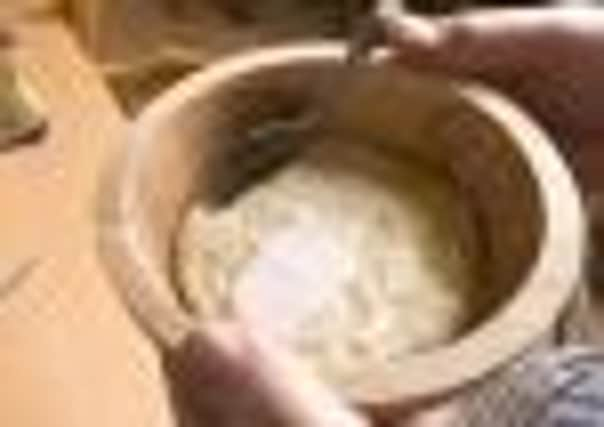Why eating porridge led to more Scots babies


ScotlandsDNA, a project designed to analyse the genetic background of Scots, discovered there was a huge rise in the population in around 3,000BC.
According to Alastair Moffat, the author of The Scots: A Genetic Journey, the reason ancient Scots women were able to give birth to more children was the discovery of porridge.
Advertisement
Hide AdAdvertisement
Hide AdIn hunter-gatherer societies the rate of population growth was low because mothers suckled their children for as long as five years until their teeth were strong enough to consume the diet of meat and roots, fruits and fungi harvested. During the period in which women were breastfeeding their children they were often infertile.
However, when farming techniques arrived in Scotland in around 3000BC, cereals were grown and were then mashed into a nourishing porridge which did not need to be chewed and so could be easily fed to infants. This, in turn, allowed women to stop breastfeeding a lot sooner.
As Mr Moffat writes in today’s Scotsman: “The birth interval halved and populations began to explode.”
Mr Moffat, who is also speaking at the Edinburgh International Book Festival today, explained: “So, what all that means is that not only does porridge have an ancient history, it profoundly affected the make-up of our DNA, and it powered the greatest revolution in our history – the coming of farming.”